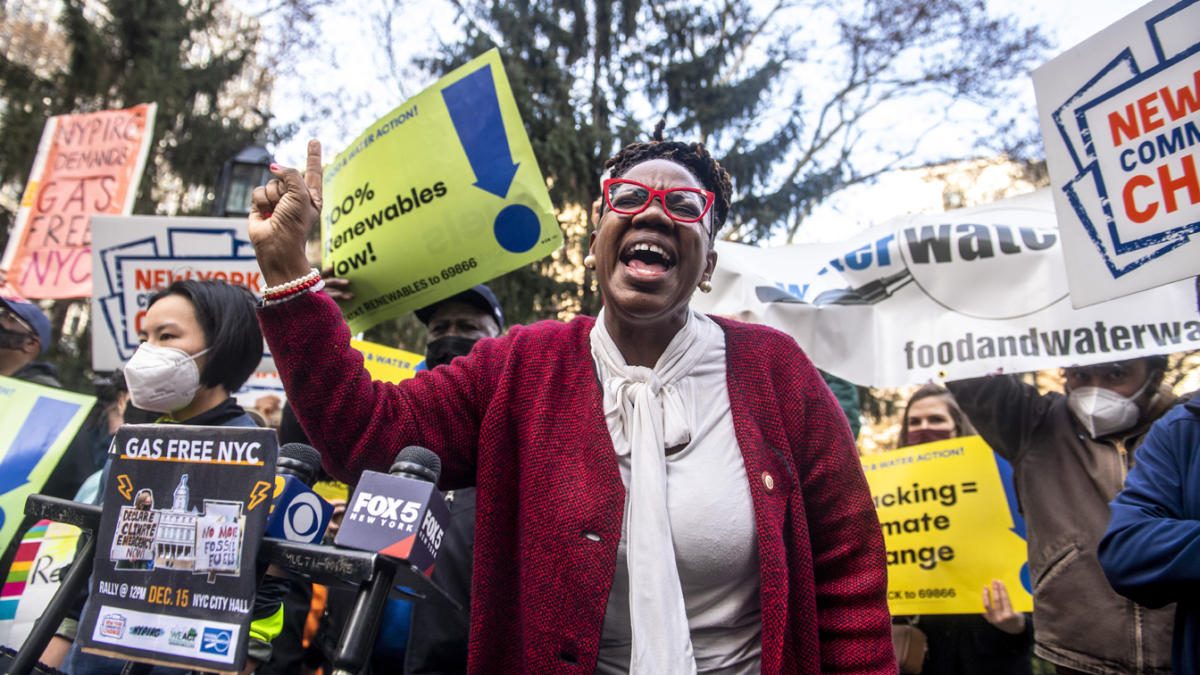In a landmark moment for the effort to combat climate change, the New York City Council voted overwhelmingly on Wednesday to ban gas hookups in new buildings. The new law, which New York City Mayor Bill de Blasio will sign, bans new gas stoves, boilers and heaters in new buildings and buildings that undergo gut renovations.
“We’re making it clear that the next generation of buildings will be electric buildings,” Ben Furnas, de Blasio’s director of climate and sustainability, told Yahoo News. “We’re sending a message to the world that if you can do it here, you can do it anywhere.”
New York is the largest city in the United States and by far the largest in the country to adopt a ban on new gas hookups. Previously, only a handful of cities on the West Coast, such as San Jose and Berkeley in California, had such policies in place.
“This is a very big deal. The places that have done this already don’t have four seasons, and they don’t build as big,” Furnas noted.
While the initial effect on greenhouse gas emissions will be modest, it will grow over time. Burning fossil fuels for heat and hot water accounts for 40 percent of New York City’s greenhouse gas emissions, according to the Mayor’s Office of Sustainability. A study by the think tank RMI found that by 2040, the new law will reduce emissions by the equivalent of taking 450,000 cars off the road.
In the absence of gas for heating, hot water and cooking, those services will be provided by electric stoves and heaters. Although New York City’s electricity generation portfolio is not 100 percent clean, switching from burning gas on-site to using electricity has a lower emissions output.
“It’s a historic step forward in our efforts to reach carbon neutrality by 2050 and reduce our reliance on fossil fuels,” Furnas told the New York Times.
The bill’s supporters also characterized it as a victory for environmental justice, because it will reduce local air pollution, which is especially prevalent in lower-income and Black and Latino neighborhoods.
“We are prioritizing people over profits and over properties,” said the bill’s lead sponsor, New York City Council member Alicka Ampry-Samuel, a Democrat from Brooklyn, at a rally before the vote in front of New York City Hall.
Although the bill ultimately passed by a 40-7 vote, its passage marked the culmination of weeks of behind-the-scenes negotiations over the details. The real estate industry, though not wholly opposed, successfully advocated for delays in implementation: The law will take effect in December 2023 for buildings of six stories or less and in 2027 for taller buildings.
While environmentalists hope other cities will follow in New York City’s footsteps, the politics of transitioning away from fossil fuels are much more favorable in New York, where Democrats currently hold a supermajority on the city council and in both chambers of the state Legislature. In 20 states, Republican-dominated state legislatures have passed laws preempting cities’ ability to set greener building codes.
